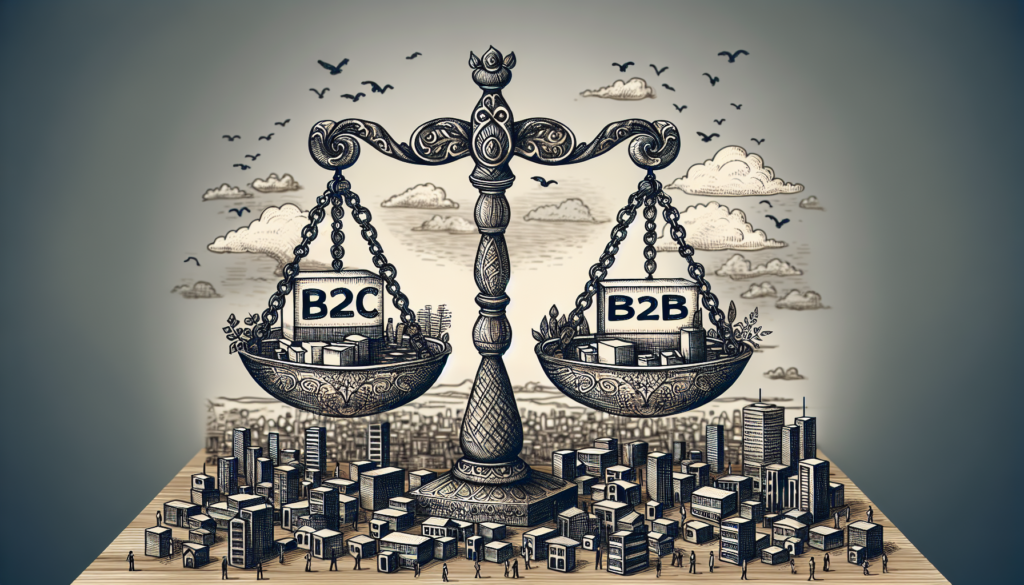B2C fulfillment, or business-to-consumer fulfillment, focuses on getting products directly into the hands of individual customers. This type of fulfillment typically involves picking, packing, and shipping orders to individual addresses. B2C fulfillment often requires a high level of accuracy and efficiency, as customers expect fast delivery times and seamless order processing.
On the other hand, B2B fulfillment, or business-to-business fulfillment, involves supplying products to other businesses rather than individual consumers. This type of fulfillment often includes larger order volumes and more complex distribution networks. B2B fulfillment may also involve specialized services such as kitting, labeling, and custom packaging to meet the specific requirements of business customers.
One key difference between B2C and B2B fulfillment is the level of customization and personalization required. In B2C fulfillment, each order is unique and may require individualized packaging or branding. Customers expect a high level of attention to detail and personalized service when ordering products online. In contrast, B2B fulfillment focuses more on efficiency and scalability, as businesses often place larger orders that need to be processed quickly and accurately.
Another important distinction between B2C and B2B fulfillment is the distribution channel. B2C fulfillment typically involves direct-to-consumer shipping through carriers such as UPS, FedEx, or USPS. In contrast, B2B fulfillment may involve shipping to distribution centers, retail stores, or other business locations. B2B fulfillment often requires coordination with multiple partners and carriers to ensure that orders are delivered on time and in full.
In terms of inventory management, B2C fulfillment tends to focus on a wider variety of products with smaller order quantities. This requires a more flexible approach to inventory management to ensure that popular items are always in stock and ready to ship. B2B fulfillment, on the other hand, often involves larger order volumes of fewer SKUs, which can be managed more efficiently through bulk ordering and strategic inventory placement.
Ultimately, the key to successful fulfillment, whether B2C or B2B, is a seamless and integrated supply chain. By partnering with a reliable fulfillment provider like Fulfillment Hub USA, businesses can streamline their operations, reduce costs, and improve customer satisfaction. With state-of-the-art technology and a dedicated team of experts, Fulfillment Hub USA offers end-to-end fulfillment solutions tailored to meet the unique needs of each client.
In conclusion, understanding the differences between B2C and B2B fulfillment is essential for optimizing your e-commerce operations. By tailoring your fulfillment strategy to the specific needs of your customers, you can improve efficiency, reduce costs, and drive growth for your business. Whether you are selling directly to consumers or supplying products to other businesses, partnering with a trusted fulfillment provider like Fulfillment Hub USA can help you achieve your goals and take your business to the next level.
FAQs:
1. What are the main differences between B2C and B2B fulfillment?
The main differences between B2C and B2B fulfillment lie in the level of customization, distribution channels, inventory management, and order volumes. B2C fulfillment focuses on individual customers and requires personalized service, while B2B fulfillment involves supplying products to other businesses in larger volumes.
2. How can partnering with a fulfillment provider like Fulfillment Hub USA benefit my business?
Partnering with a fulfillment provider like Fulfillment Hub USA can help streamline your operations, reduce costs, and improve customer satisfaction. With state-of-the-art technology and a dedicated team of experts, Fulfillment Hub USA offers end-to-end fulfillment solutions tailored to meet the unique needs of each client.
3. What should I look for in a fulfillment provider for my business?
When choosing a fulfillment provider for your business, it is important to consider factors such as technology capabilities, scalability, geographic location, pricing, and customer service. Look for a provider that offers flexible solutions, transparent communication, and a proven track record of success in the industry.
For more information on how Fulfillment Hub USA can help optimize your fulfillment operations, visit https://fulfillmenthubusa.com.
